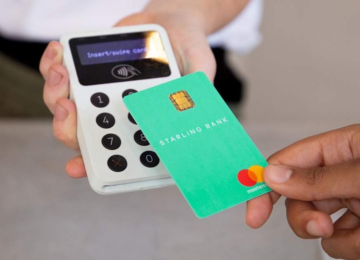Financial reporting for property management denver co is no more complicated than any other type of accounting. Management of rental properties is a demanding profession. But keeping the books for your rental properties doesn’t have to be this difficult. Keep reading to find out how to organize your accounting for property management.
What Is Property Management Accounting?
Accounting for property managers is the same as accounting for landlords. Rents collected are recorded as income, while costs such as repairs and landscaping are recorded as expenses.
How to Set up a Property Management Accounting System
These are the methods I’ve found to be effective in a variety of settings.
Determine your tipping point
There are two ways in which I keep the books for my property management company. I use a local classifieds website to find tenants for my two condos. Every day, I oversee twenty to thirty apartments that belong to the company’s founders.
When I do my taxes each year, I pull up the most recent version of my condos’ financial statement spreadsheet. I make sure my rent was paid in full every month and keep all of my receipts for the year in a file folder. A simple income statement is all I do. For such tiny entities, it wouldn’t be worth the effort to maintain a detailed balance sheet.
Professionally, I use our accounting software to perform monthly bank reconciliations and maintain an up-to-date rent roll for a portfolio of rental properties.
There is no hard and fast rule for when you should switch from using a simple system like the back of an envelope to a more sophisticated one like double-entry accounting. In most cases, a spreadsheet will suffice if your annual business volume is low. Using accounting software is recommended if you are regularly processing multiple invoices. And, if all of this starts taking away too much of your time, you may consider partnering up with an accountant or accounting firm that also has experience in property management, such as SCK Group.
Purchase accounting software
Finding landlord-specific software is unnecessary. Property management accounting is most effective when it follows the same standards as other businesses. Therefore, standard accounting software will meet all of your requirements.
Set up each property
Many things will need to be prepared for each property:
Put a multi-unit commercial property into its own limited liability company to protect yourself from lawsuits.
Your bookkeeping software should support the addition of new companies. Make one for each individual or organization.
Having a separate bank account or credit card for each investment property makes it much simpler to monitor those expenses. After that, you’ll need to add each journal entry from the monthly statement into the program.
General ledger and chart of accounts: Create a GL and a corresponding CHA for each investment property. Better design from the start means faster monthly transaction processing.
Do the monthly accounting cycle
- Automating monthly invoices with ACH (Automated Clearing House) payments is easy with many accounting software programs since they can integrate with your bank account. Set up monthly ACH pulls from your tenants by meeting with the treasury management representative at your bank if your software doesn’t do this. You could also insist that your tenants pay you via automatic bill payment or an ACH push. The secret is to remove the hassle of collecting rent each month by setting up an automatic payment system.
- Manage monthly invoices: You will receive bills for various expenses such as utilities, landscaping, maintenance, and so on. Electronic funds transfers can be used to pay for many of these. Print checks for the other people using your accounting software.
- Perform a bank reconciliation to verify that the cash on hand in the balance sheet corresponds to the cash in the bank. Enter all of the transactions from your bank statement into the program (unless the transaction is from a check that you already entered). Then, you can verify if the cash on hand matches the amount shown on the bank statement or the book (the software amount). If it’s different, you’ll need to double-check the statement and the general ledger to see where the discrepancy occurred.
You can publish financial statements once a month, three times a year, or annually. If you have a larger property, it may be wise to do this on a monthly basis to monitor your expenses. Your only remaining task before printing your property management financial statements is to ensure that the general ledger was constructed properly and that all transactions were posted to the appropriate accounts.












